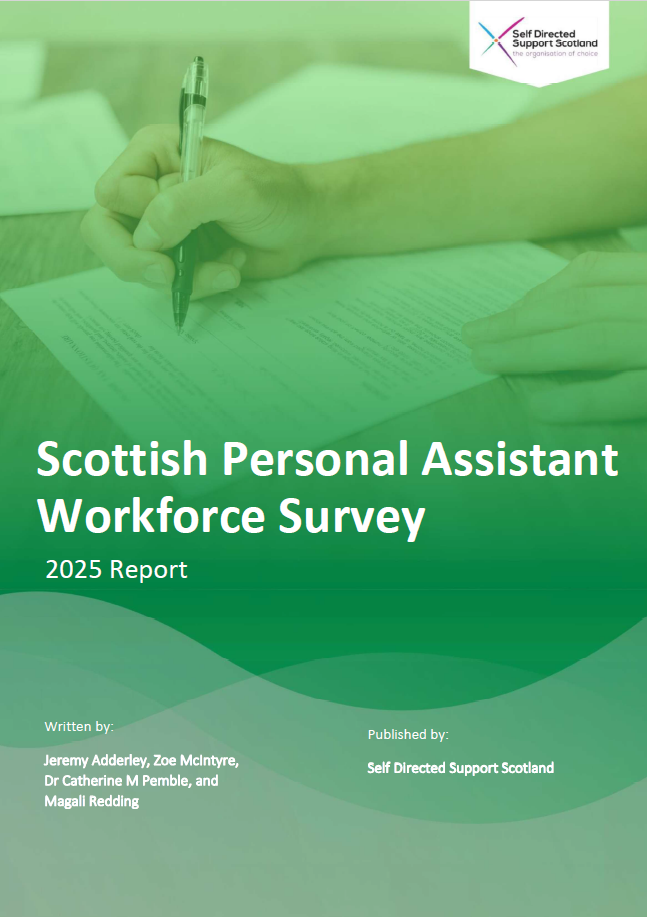Scottish PA Workforce Survey 2025 results report published
Self Directed Support Scotland is pleased to publish the findings of the third Personal Assistant Workforce Survey!
The 2025 PA Workforce Survey, conducted between 1st April and 5th May 2025, builds on information gathered in the 2022 and 2023 reports, focusing on critical themes such as pay, recruitment, wellbeing, and job satisfaction. This version of the survey sought to keep core questions from previous years to ensure consistency while introducing new questions to reflect recent developments, including the introduction of PVG Registration for PAs in Scotland in April 2025, and ongoing efforts to determine the size and support needs of the PA workforce.
Christina McLaren, Unit Head for Ethical Commissioning and Personal Assistant (PA) Policy, Scottish Government, and Co-Chair, PA Programme Board said:
This survey is now a cornerstone of our evidence-based approach. It helps us understand the lived experiences of PAs and informs our ongoing efforts to improve recognition, support, and working conditions. We are grateful to all who contribute to this work and look forward to continuing our journey.
The full report gives an insight into the PA workforce in Scotland, including what motivates and challenges PAs across Scotland.
The findings highlight both areas of continued strength within the workforce and ongoing challenges that continue to affect recruitment, retention, and job satisfaction:
Demographics of the PA Workforce
- PAs continue to predominantly be white (92%) women (81.7%), who were nearing or at retirement age (45%).
- PAs in Scotland have a diverse range of skills and experience—over half of PAs (53%) moved into a PA role after working in health or social care, almost a quarter (24%) from customer-facing sectors like retail and hospitality, and a further 14% having a background in education.
How PAs feel about their role
- A clear majority of PAs (94%) feel proud to be a PA, an increase from 86% in 2023.
- The majority of PAs (57%) said their role had a positive impact on their mental health.
- Although most PAs year on year have agreed that they feel better valued (51%), fewer PAs feel that their work is better recognised (31%).
- PAs expressed concerns over low pay, a perceived lack of benefits when compared to other social care roles, and wider cuts to funding.
PA Working Conditions
- Most PAs have job security, with 51% of PAs on permanent contracts. However, a significant lack of contractual clarity persisted for over a quarter (26%) of the workforce. This included PAs with no contract, uncertain terms, or on zero-hours arrangements.
- Most PAs work part time, with 71% of PAs working fewer than 30 hours per week.
- PAs were paid an average of £13.13 per hour in April 2025.
- A significant number (40%) of PAs provide unpaid support to their employer outside of paid hours.
- Some PAs had accessed training (24%) and/or support for their role (15%) in the last year.
The report sets out the list of practical recommendations and next steps in categories such as:
- Direct Payment Agreements
- Recruitment
- Employment Conditions
- Communications
- Wellbeing
- Data

